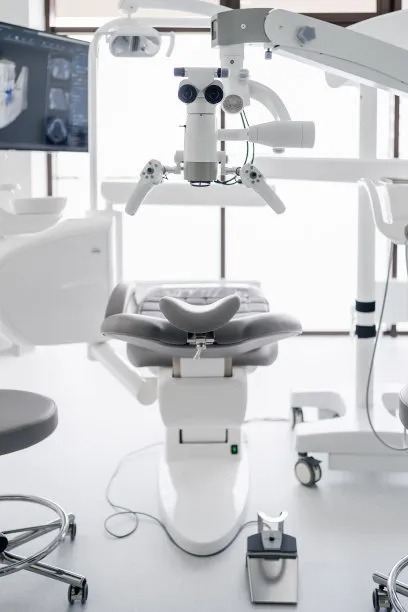Summary: Maintaining the longevity and effectiveness of dental fillings is crucial for optimal oral health. This article explores essential guidelines and precautions that patients should consider after receiving dental fillings. By adhering to best practices in dental hygiene, dietary choices, routine dental visits, and understanding potential issues, individuals can significantly enhance the performance and lifespan of their fillings. Following these recommendations will help in avoiding complications and contribute to overall dental health and satisfaction post-treatment.
1. Prioritize Dental Hygiene Practices

One of the most effective ways to ensure the longevity of dental fillings is to prioritize proper dental hygiene. Regularly brushing teeth at least twice a day helps remove plaque and food particles that can contribute to decay around the fillings. Using a fluoride toothpaste can further strengthen enamel and provide extra protection for both filled and unfilled areas of the tooth.
Flossing daily is equally vital, as it helps prevent buildup between teeth and fillings. Many people overlook this step, yet food particles can become trapped in these spaces, leading to potential cavities. Consider using fluoride mouthwash as an additional layer of defense, which can help in killing bacteria and providing a clean feeling in your mouth.
Moreover, it’s essential to remember to replace your toothbrush every three to four months to ensure that it remains effective. A worn-out toothbrush may not clean as efficiently, putting filled teeth at risk for further issues.
2. Be Mindful of Your Diet
Your diet plays a significant role in the maintenance of dental fillings. Consuming a balanced diet rich in fruits, vegetables, lean proteins, and whole grains can greatly benefit oral health. Foods that are high in sugar can lead to bacterial growth, which produces acids that are detrimental to fillings and the surrounding enamel.
Additionally, acidic beverages such as soda or citrus juices should be consumed in moderation. These beverages can wear down enamel over time and potentially affect the bond of dental fillings. If you do indulge, consider drinking through a straw to minimize contact with your teeth.
Furthermore, try to avoid sticky foods, which can cling to fillings and create additional pressure. Chewy candies or foods can dislodge fillings or even cause them to fracture. Opting for softer foods can ensure that your fillings stay intact and functional.
3. Schedule Routine Dental Visits
Regular dental check-ups are essential for monitoring the condition of your dental fillings and overall oral health. Dentists can identify potential issues early, such as any wear or decay around the fillings, and promptly address them before they develop into more significant problems.
During these visits, your dentist might recommend professional cleaning to remove tartar buildup that regular brushing and flossing may miss. Routine examinations typically include X-rays, which allow your dentist to view areas that are not visible to the naked eye, ensuring that everything is healthy.
Beyond just health checks, your dental professional can provide personalized advice tailored to your needs, informing you about any factors affecting your oral health based on your current fillings. This proactive approach helps in maintaining the effectiveness of your treatment.
4. Recognize and Address Potential Issues
Being aware of potential issues with dental fillings can prevent more serious complications later on. Post-treatment, patients should monitor for signs of discomfort or changes, such as sensitivity to hot or cold. If these sensations persist, it might indicate that the filling is compromised or that decay has developed around it.
Another common issue that may arise is the chipping or cracking of dental fillings. If you notice any visible damage or experience discomfort, seeking immediate dental attention is crucial. Ignoring these signs can lead to larger problems, potentially requiring more extensive treatments.
Finally, educating yourself about the materials used for fillings can also be beneficial. Different types of fillings, such as amalgam or composite, may have varying lifespans and care requirements. Understanding the characteristics of your specific fillings can guide you in proper maintenance.
Summary:
Ensuring the longevity and effectiveness of dental fillings involves a combination of diligent dental hygiene, mindful dietary choices, routine dental check-ups, and awareness of potential problems. By implementing these essential guidelines and precautions, individuals can protect their teeth and ensure that their dental work remains in optimal condition over the years.
This article is compiled by Vickong Dental and the content is for reference only.
Vickong Dental
Vickong Dental is a large medical group established in Hong Kong in 2008 by professors from well-known medical universities in Guangdong and Hong Kong, as well as medical doctors from key national '985' universities (including Master's supervisors and senior professors). The chain of branches brings together expert dentists with PhDs and Master's degrees from Hong Kong and Mainland China, committed to providing high-quality dental treatment.
"Vickong Dental Practices the University Motto of 'Healing and Serving Society,' with a Stable Operation for Sixteen Years. It Has Been honored with Hong Kong Enterprise Leaders's Choice,' and is a Global Trusted Implant Center for the Nobel Implant System. Recommended by Hong Kong Metro Broadcast and Guangdong Television, it Serves Customers from Over Thirty Countries and Regions, Gaining the Trust and Favor of Citizens from the Guangdong-Hong Kong-Macau Greater Bay Area and Surrounding Cities.

Thousands of customers' unanimous praise
The most recognized and highly recommended dental service by customers in the Guangdong-Hong Kong-Macau Greater Bay Area
We Ensure You Receive Detailed Care and Attention Here
Hong Kong standards, Shenzhen prices, Your Trusted English-speaking dentists

Vickong Dental Medical-Grade Instrument Disinfection Process
Vickong Dental Medical-Grade Instrument Disinfection Process

Vickong Dental Chain: A Warm and Comfortable Environment for Treatment






Appointment Hours

Q&A
Why choose Vickong Dental?
Vickong Dental practices the university motto 「Medicine to Benefit Society」, with each branch bringing together highly qualified dentists with doctoral and master’s degrees from Hong Kong and the Mainland, and has maintained seventeen years of steady operation。Recipient of 「2024 Hong Kong Enterprise Leaders Brand」, 「2025 Hong Kong Enterprise Leaders Brand」, a Nobel Biocare Global Trusted Implant Center, and a brand recommended by Metro Radio Hong Kong and Guangdong TV。
To date, we have served customers from more than thirty countries and regions,earning exceptionally high word-of-mouth recognition and trusted recommendations from residents across the Guangdong-Hong Kong-Macao Greater Bay Area and surrounding cities
We have eight major branches in Zhuhai、Shenzhen,and a consultation and service assurance center in Hong Kong,so you can book a free consultation at any time for any questions,which is very reassuring.
If I do not accept the quotation after the CT scan, will I be charged??
No! As long as the actual treatment has not started, you will not be charged any fees.
Will there be any additional charges during the treatment process?
No, there won’t be any additional charges. Before treatment begins, we will clearly explain the treatment plan and its corresponding fees. Only after the patient agrees and signs the consent form will we proceed with the dental service.
Can I pay in Hong Kong dollars?
Yes. Vickong Dental accepts payment in Hong Kong dollars. The amount will be converted based on the exchange rate of the day, and the applicable rate will be clearly communicated to you in advance.
Can I reschedule my appointment at any time?
Yes. Please contact us via **WeChat** or **WhatsApp** as early as possible, providing your original appointment time and details, along with your preferred new date and time slot for rescheduling.













